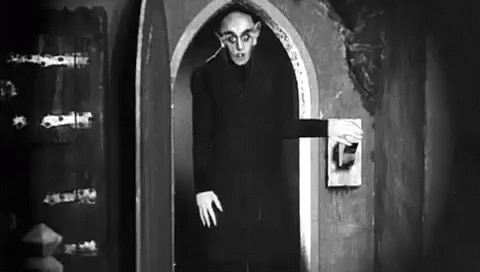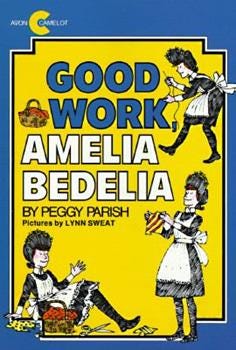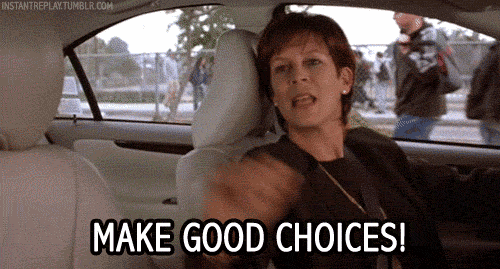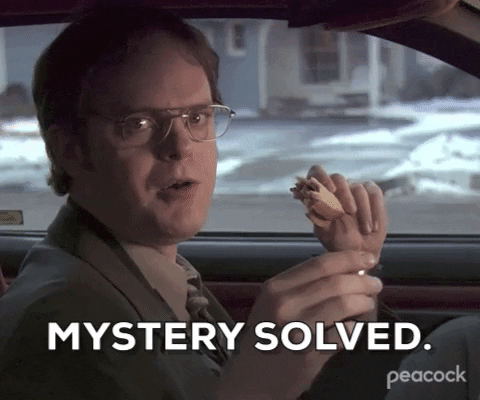Is it my kid, the teacher, neither, both?
How to be a good parent-parent, school-parent, and private investigator
I got the following email from a reader a few weeks ago and it feels very representative of situations a lot of parents I know (including yours truly) have gone through the last few years.
I could use some witchy advice on what to do when your kids are being dicks at school, and you swear they're not really huge dicks but also unclear how much power you have over something that happens when you're not around, and what to do about it when they return to you hours later and may or may not even remember why they kicked that one kid in PE. Also, my instinct is always to support teachers no matter what because their jobs are hard enough as it is, but what do you do if you feel like your kid's punishment is not fitting the crime? Huge can of worms, all of this!
So, an old friend of mine told me recently about how her little sister (now an attorney!) found all sorts of ways to avoid going to school when she was in first grade. Her mom, who is a very common sense type of lady, was exasperated, frustrated and mystified until she found out that the teacher was being mean to the child. And this was the mother’s sixth child to go through elementary school. All this is to say that sometimes even the smartest, most experienced parents have trouble knowing how to approach these situations. If only our kids were all little Matildas and their teachers Miss Honeys but sometimes teachers aren’t great and sometimes kids don’t know how to be in school and the parent feels responsible for both parties (and therefore guilty, worried, sad, maybe a little embarrassed.) Along those lines, here is some feedback I’ve gotten from other witches who have been there.
*
“I have been through my share of Calls From the Teacher/Principal/Gym Teacher with my son, and my approach was always to preface questions/counterpoints with something along the lines of ‘I am by no means saying that he is without fault here, but....’ and then proceed. I mean, sometimes the infractions were also just ridiculous - the best example being the call I received because he and friends were singing ‘99 Bottles of Beer on the Wall’ on the bus to aftercare. When I asked if, besides it being an annoying song, singing was forbidden on the bus and the assistant principal responded, practically gasping in horror, "WE CERTAINLY DON’T WANT *CHILDREN* SINGING SONGS ABOUT *ALCOHOL*!" I mean...I learned that song at girl scout camp!”
*
“My daughter’s transition to kindergarten has been rough and the teacher communicated several times about her behavior. My daughter is definitely not perfect, and she agreed she was acting out in the ways the teacher identified, and so we both worked with her on improving her behavior.
But the teacher just became overwhelmingly negative, culminating in a parent teacher conference where she focused solely on my daughter’s behavior, was unaware of academic issues (I had some concerns), and said nothing positive about my kid. When I picked my daughter up that day she was so eager to hear her behavior had improved and I had to tell her that her teacher didn’t say anything positive. It was devastating. I think I really started realizing things had gone off the rails when I was introducing my daughter to the Amelia Bedelia books as about someone who does everything wrong and she said, ‘Oh, like me.’ Just a punch to the gut.
I ended up writing a long email that could be summed up as ‘could you please just say something nice about my kid.’ The teacher called and I ended up crying on the phone and telling her how much my kid hated school and didn’t want to go. It was a real turning point. I wish I’d been better able to keep my cool, but the teacher really seemed to get that her attitude was negatively impacting my daughter and she committed to doing a daily list of positive feedback.
The hard part was realizing when it went from helpful feedback to the teacher just ragging on my kid without providing positive feedback as well. In case others run into this type of problem, the magic words were ‘my daughter hates school and doesn’t want to go.’ That really woke the teacher up—kids that young rarely react that way.
The daily list of positive feedback was so so helpful both for my daughter and me—I had a better sense of what was happening day to day and I made sure to really make a big deal about how awesome she was for even the smallest positive. It helped her feel a lot better about herself, and forced the teacher to articulate what she was doing wrong in a way I could follow up on. I would suggest any parent ask for something like this: it made a huge difference.”
*
“My kid’s ultimate ADHD diagnosis changed conversations with teachers and their expectation and level of support and changing our own expectations and level of support at home at the same time. I think shame or feelings of inadequacy had been working their way out through misbehavior and I felt like the school was just piling on the shame in some ways. Like he was chronically forgetting his homework assignments, day planner, text book whatever at school so couldn’t do his homework. He’d cry in the morning that his teacher was going to say something in front of the whole class. I told him that was not cool and I’d talk to her about it. His teacher was telling us we needed to support him more in completing homework. I said I’m not in school and have no way of making sure that the right things come home. I asked if there could be some more support in class to write down assignments in the planner and remind to put stuff in the backpack. I can deal with things on my end if I’m getting all the information but we can’t assume that ‘by 5th grade’ all kids can do this. So, yeah, advocating for my kid within a one-size-fits-all system is fun.”
*
[From a journalist mom of four almost-grown sons who also writes a lot about boys]:
“The biggest thing I did re: kids and school stuff is to mostly let the school handle it. If I got a call or email or note from school, I’d talk to my kid about whatever ‘it’ was, but I almost never added any punishment. I get and respect the impetus to back teachers (because, yes, their jobs are hard!) but teachers are people. They’re human and susceptible to mistakes and bias and all the rest. AND they are often working in systems that aren’t really designed with their needs or kids’ needs in mind. So, if the punishment seems disproportionate to the crime, you gotta speak up — both for your own kids, and for all the other kids to come.
In the case of boys, especially, there’s all kinds of research to show that boys are generally punished more harshly than girls for similar behavior, and Black boys get it worse than white boys. The evidence shows that these discrepancies are unintentional but pervasive — as in, happening in most schools around the country, for decades — and that this disproportionate punishment contributes to boys' disengagement from school, the academic achievement gap and the school-to-prison pipeline.”
*
[The following is from a witch who is also an elementary educator]:
“The best way to approach a situation like this is to make an appointment. Emailing back and forth—don’t. If it’s something that’s really bothering you, you have to have a face to face talk. You gotta ask for specifics, what exactly happened so you can go back to your kid. My kids don’t tell me anything. My daughter’s teacher used to tell me certain incidents that would happen with my daughter. I would get all the information from the teacher about exactly what she saw so I could go back to my daughter and say ‘OK, this is what other people said.’ She would be like, ‘Oh yeah, okay, this happened and that happened’ and you get a fuller picture.
It’s not necessarily that you’re questioning the teacher. You can go back to the teacher and say, ‘This is what my kid told me about that situation.’ What probably happened was he kicked somebody and the teacher heard it after the fact and she doesn’t have all the information. It’s not that you’re necessarily discounting what the teacher says. If you get the biggest picture possible, you can more effectively address it.
Sometimes a teacher and a kid just don’t get along though. I had one kid: we were oil and water. We had a meeting with the parents and we came up with a behavior plan. It was a literal contract we signed. ‘We will not do this, this is what the kid will not do, these are the rules that we are asking you not to do and we will stick to these rules.’ If it’s violated we do step 1, step 2, step 3. This is what behavior is expected, this is what’s going to be triggered if it’s not done. It gives responsibility to both the teacher and the kid. If the kid did get in trouble, well, did you follow the rules? If it was like ‘Yes, but I pushed the kid and I got in trouble but somebody was throwing sand and I pushed him out of the way because he was going to get pelted with sand,’ then you know there is a mechanism, you can come back and you have a point of reference where you can talk about it.”
*
Finally, I’ve semi covered this topic in an earlier issue so there’s a little more feedback, particularly covering littler kids here. If you’re reading this issue and are identifying with it hard, remember that really good moms have kids who sometimes act out at school and that doesn’t mean the kids are no less wonderful.
End credits
Thanks for reading Evil Witches, a newsletter for people who happen to be mothers. Feel free forward this issue to someone who could maybe use this. If you haven’t yet, I hope you consider becoming a paid subscriber which gets you bonus content and threads! Many years of searchable archives live here.
If you have any questions, feedback, or suggestions for the newsletter you can reply to this email or talk to other witches on Twitter. This made me laugh—here were various things witches compared their children to when I asked last night about kids who get more amped up, not less, at bedtime:
“a WWE pay-per-view”
“coked out gremlins”
“flopping dying fish”
“Dracula”








This week is Parent Teacher conference week so this is so helpful and timely. We had a really upsetting (to me, my kid's fine, lol) conference in November and I basically followed none of this advice and glad to have it now. It might be kind of too late for this teacher and this school year but it's good to know so many other parents have dealt with these kinds of situations.
This situation doesn't apply to me (or hasn't yet 🤞🏻) but I just want to say thank you for diving deep into topics that I'm not hearing about anywhere else. Evil Witches is always like talking to my girlfriends: useful, helpful, reassuring, often hilarious, and a much-needed reminder that I'm not alone / a bad mother / the progenitor of monsters. I can't tell you how much I appreciate it.